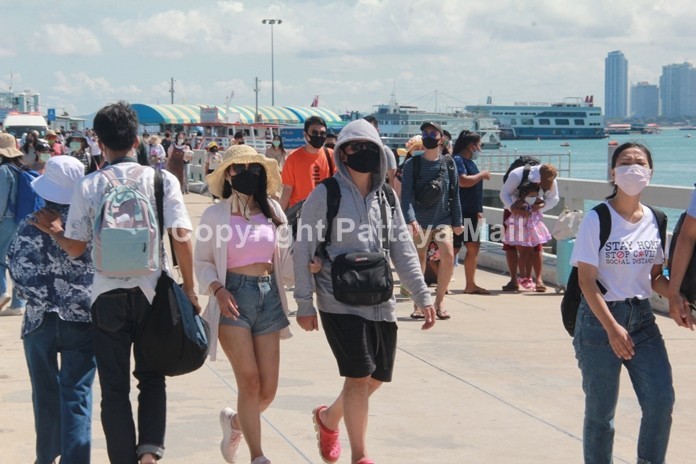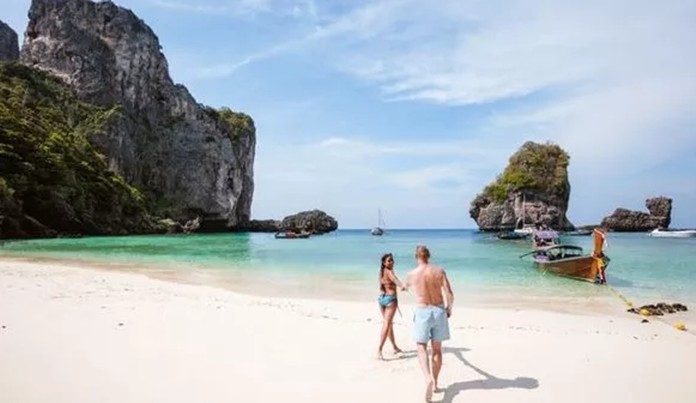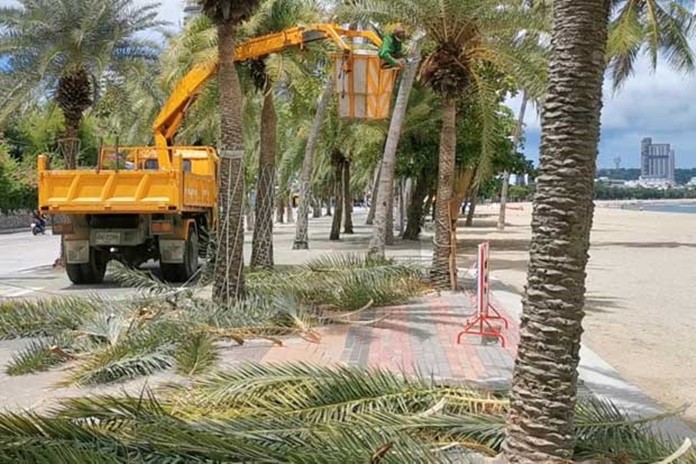
The Thai prime minister, Prayut Chan-ocha, and members of the Thai Cabinet have been busy this week checking up on preparations for the influx of foreign tourists expected soon. There have been government visits to Koh Samui and Phuket, both popular sun and sand resorts, to monitor in particular the health-security and anti-Covid regulations.
The publicity has led many in traditional tourist markets – notably the UK, western Europe and the US – to believe that Thailand is preparing to open up once again as a general tourist and leisure destination. Travel agents in Britain in particular say they have been inundated with enquiries, particularly now that no fewer than eleven airlines are operating out of London to Bangkok.

Greg Watkins, a London tour operator and spokesman for the Association of British Travel Agents, said, “The reality is that Thailand remains closed to the vast majority of Brits who are keen to visit once again. This is because the openings for general tourists are limited to low-risk coronavirus countries in a period when most of western Europe and the USA are experiencing a second wave of infections.”
There are now three categories of leisure tourists who can be admitted from low-risk countries: the 90-270 days Special Tourist Visa (STV), the 60 days tourist visa and the passengers and crews of cruise ships. There is no definitive list of approved countries which, in any case, may change over time. However, it is known that Thai embassies in China and Scandinavia have been authorized to issue tourist permits. Thai embassies in London, Paris and Washington by contrast do not mention these options. Not possible there.
Only two pioneer groups of Chinese tourists have yet landed in Thailand and they had to produce detailed health documentation, Covid-19 insurance cover not less than $100,000, further medical insurance of at least 400,000 baht to cover non-coronavirus issues and proof of having paid in advance for their 14-days hotel quarantine. The quarantine regulation may reduce to 10 days, but the Centre for Covid-19 Situation Administration (CCSA) is yet to rule on the matter.

Mr Watkins said, “The onerous regulations do not add up to a reopening of the country. Even if the latest tourist visas did apply to UK, I doubt many people would be interested. What Brits are waiting for is a return to old world when you bought an air ticket, produced your passport at Thai immigration and started enjoying yourself.” He doubted that unrestricted travel would return until the second half of 2021, and even that was not certain. “Compulsory insurance may be with us on a permanent basis,” he added.
ABTA also points out that the eleven airlines now flying from London to Bangkok (often with a stopover) are semi-commercial carriers. That means they can accept as passengers only Thais returning home and foreigners who can show a Certificate of Entry issued by the local Thai embassy. ABTA advises travellers not to book flights until they have secured embassy permission, otherwise they will be refused boarding.
Certificates of Entry require Covid-19 insurance, pre-flight health documentation and proof of payment for hotel quarantine in a registered Thai hotel. Embassies require applicants to prove with copious documentation they are in an approved category for entry. These are foreign work permit holders, students, bona fide business people, permanent residents (who can show a red police book), medical tourists, those with a Thai spouse or dependants, Elite visa holders, and some wealthy condominium owners.
A final category are those holding an O/A annual retirement visa or wishing to apply for one. This visa in UK requires 2 months prior proof of 800,000 baht in a Thai bank or regular payments of at least 65,000 baht to a Thai bank for the preceding 12 months. It is not possible to enter Thailand with an “O” type annual retirement visa or extension of stay. The difference is that an O/A visa requires ongoing medical insurance every time an extension of stay is requested in Thailand. The “O” visa does not require insurance for an annual extension at Thai immigration and is now restricted to those retirees who never left Thailand during the pandemic. If they do, their visa becomes invalid to return. As things stand.
 |
 |
 |





